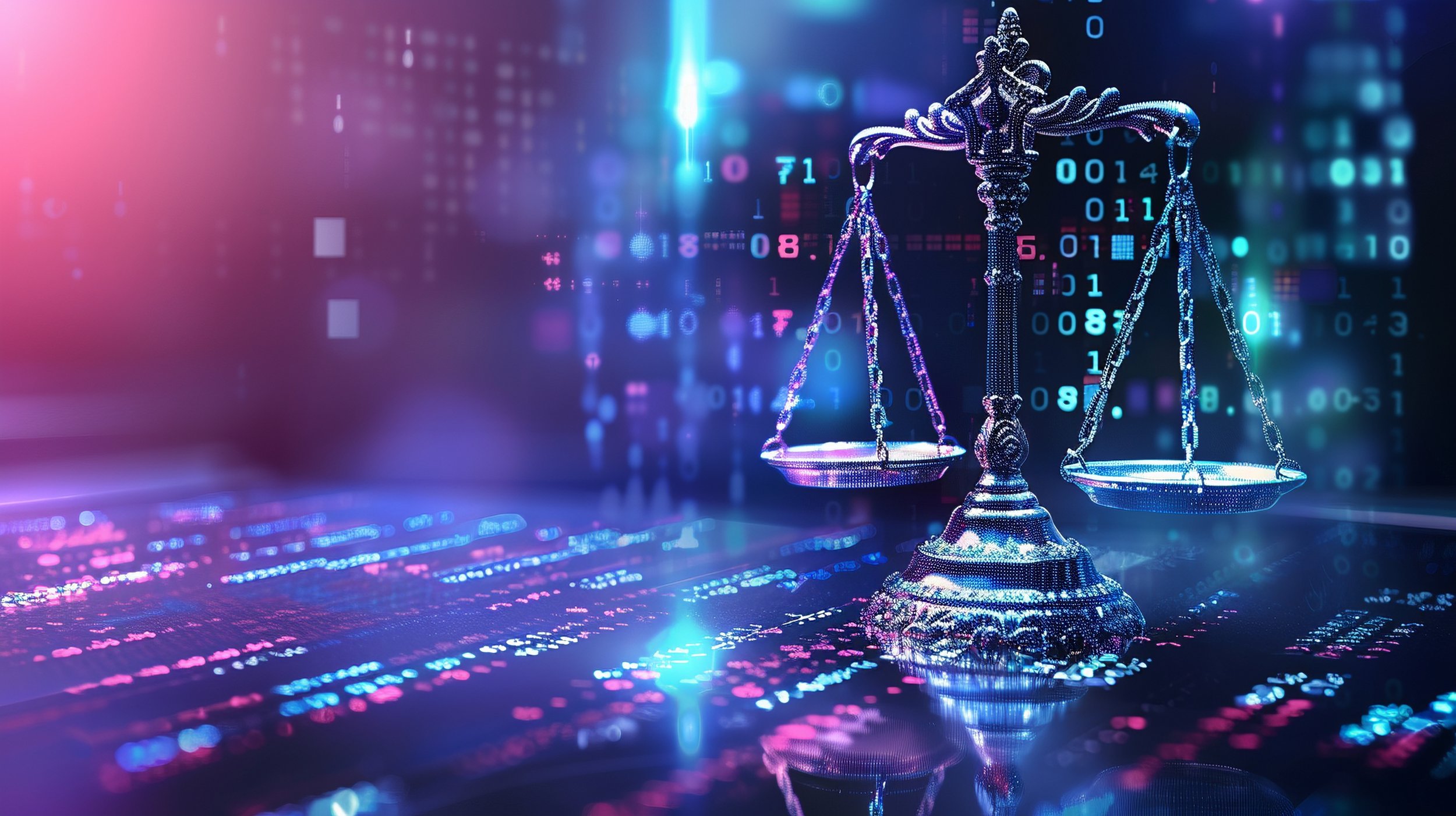📢 Shout Out! ILTACON 2025 Recap: AI Revolution, Cybersecurity Imperatives, and the Exciting Legal Tech Future!
/🎉 Three Game-Changing Highlights from Legal Technology's Premier Event!
Iltacon - The only peer-created and led conference for legal technology professionals.
The corridors of the Gaylord National Resort & Convention Center just outside Washington, DC were buzzing with an energy as one fellow reporter aptly put it was the most excitement he’d seen at ILTACON in years – and the catalyst was undeniably artificial intelligence.
With over 4,000 legal professionals from 30 different countries converging in National Harbor, Maryland, from August 10-14, ILTACON 2025 delivered an unprecedented showcase of innovation. The numbers tell the story: over 225 vendors and over 80 educational sessions created a treasure trove of legal technology advancements that had attorneys and IT professionals equally captivated.
🚀 Highlight #1: AI Takes Center Stage – From Pilots to Production
The shift from AI experimentation to implementation was unmistakable. Harvey, iManage, Thomson Reuters, and Litera weren't just talking about AI anymore – they were demonstrating working solutions and real-world results.
AI agents emerged as the breakout stars. These sophisticated systems move beyond simple chatbots to become "digital colleagues" that can plan, reason, and execute complex legal tasks autonomously. The "Orchestrating Intelligence: AI Agents in the Legal Space" session showcased how these tools amplify human capabilities rather than replace them, with speakers noting that agents will be able to do much more, but with a better quality output.
iltacon was ready for it 4000+ attendees from 30+ countries!
Knowledge Management experienced a renaissance. The "KM Roundtable: Embracing the New Wave of Knowledge Management" revealed that KM professionals have become the unsung heroes of AI implementation. Without proper content governance and data structure, even the most advanced AI tools fall flat. KM teams are shifting from maintaining knowledge bases to orchestrating AI workflows and ensuring data quality.
Interoperability standards like the Model Context Protocol (MCP) are breaking down data silos. These developments signal a future where AI tools can seamlessly integrate across platforms without costly custom development.
Real-world applications dominated discussions. Sessions demonstrated concrete time savings: customers reported 50-70% time savings reaching early drafts with better consistency, while legal research showed 60%+ time savings while discovering new arguments in cross-jurisdictional litigation. The "Charting Your Search Journey in the Age of AI" session emphasized how precedent research has evolved from "finding a needle in a haystack" to having a "haystack full of needles".
🔒 Highlight #2: Cybersecurity Rises to Critical Priority
The cybersecurity focus was evident throughout the conference, with sessions like "Emerging Cybersecurity Threats in Legal Tech" and "The Yin & Yang of Cybersecurity in eDiscovery" drawing significant attendance. These sessions addressed how sophisticated cybersecurity threats present new challenges for legal organizations, from AI-driven attacks to vulnerabilities in emerging technologies.
Reporting on iltacon2025 from Gaylord National Resort & Convention Center just outside Washington, DC!
AI Ethics in Legal Writing emerged as a critical intersection between technology adoption and professional responsibility. Ivy Grey of WordRake, recognized as an Influential Woman in Legal Tech by ILTA, led compelling discussions about the ethical implications of using generative AI in legal writing. Her panel explored how lawyers can maintain ethical obligations while leveraging AI tools for document creation, emphasizing the importance of verification, maintaining independent judgment, and ensuring client confidentiality when using AI-assisted writing tools.
Security-AI integration discussions addressed prompt injection attacks, data leakage prevention, and the challenge of educating clients about AI security measures. The "Getting the Most from M365 Copilot: The Do's & Don'ts" session provided practical frameworks for rolling out AI tools while maintaining security protocols.
Document management security revealed concerning trends. Sessions highlighted how firm knowledge is scattered across OneDrive, SharePoint, Teams, and personal folders, making it difficult to locate and use effectively. Security by obscurity no longer works, as AI tools like Copilot can surface documents that were previously hidden by poor organization rather than true security measures.
🔮 Highlight #3: The Future-Forward Mindset Revolution
Keynote speaker Reena SenGupta challenged the industry with her "seven evolutions" framework, urging legal professionals to think of law firms as living organisms rather than rigid hierarchies. Her fungal network metaphor resonated deeply – emphasizing how technology professionals serve as the connective tissue enabling knowledge flow throughout organizations.
Predictive capabilities are replacing reactive approaches. SenGupta showcased how firms are moving from precedent to prediction, with examples like DLA Piper's "Compliance-as-a-Service" product that uses AI to spot minor compliance issues before they become major problems, and Paul Hastings restructuring their white-collar investigations practice around AI-powered anomaly detection.
ILTACON2025 is celebrating 45 years!
The billable hour debate intensified. The "Bill(AI)ble Hours: The Debate Continues" session explored how AI's efficiency gains might fundamentally alter legal economics, with the audience showing more support for alternative fee arrangements (AFAs) than opposition. The discussion centered on capturing value creation rather than time tracking, though the majority agreed the billable hour wouldn't disappear within the next five years.
Multidisciplinary integration emerged as essential rather than optional. SenGupta described the breakdown of the divide between legal and non-legal roles, citing examples like White & Case's integration of project managers into client teams and DLA Piper's consulting unit working hand-in-glove with lawyers. These cross-functional teams are becoming critical for delivering client value.
🎯 Strategic Takeaways for Legal Professionals
For Solo and Small Firms: While ILTACON traditionally targets larger firms, this year's vendor presentations often included scalable solutions. The key insight? Start with AI tools that integrate with existing workflows rather than requiring complete system overhauls.
For Mid-Size Firms: Investment in knowledge management infrastructure emerged as the critical success factor. The KM Roundtable revealed that firms implementing AI without proper data governance struggle to achieve meaningful results.
For Large Firms: Change management and user adoption dominated discussions. Technical capability matters less than organizational readiness to embrace new workflows. The overview from these sessions is that robust workflows and a positive organizational culture are essential building blocks for effective AI adoption.
🔧 Practical Implementation Insights
The most valuable sessions provided actionable frameworks rather than theoretical discussions. The "Actionable AI Strategy & Policy" session offered specific methodologies for balancing governance with flexibility, with speakers emphasizing the need for a mellable but strong foundational governance policy.
Vendor interactions proved particularly valuable. The exhibit hall's "Pirate's Bounty" theme encouraged exploration, and many attendees reported discovering solutions through peer recommendations rather than vendor pitches.
Technology evaluation challenges were evident. The KM Roundtable revealed "POC fatigue" as teams try to evaluate numerous AI tools while managing regular workloads, with general skepticism about which tools will have longevity.
🚢 Looking Ahead: Charting the Course
It was great catching up with The Tech-Savvy Lawyer.Page Podcast Guest (Ep. 109) Jacqueline Schafer, Founder and CEO of Clearbrief!
ILTACON 2025 demonstrated that legal technology has moved from experimental to operational. The questions are no longer "Can AI help lawyers?" but rather "How do we implement AI responsibly and effectively?"
The excitement was palpable – and justified. For technology professionals in law, this represents a career-defining moment where their expertise directly impacts firm competitiveness and client service quality.
As we navigate these transformative waters, remember that the real treasure isn't the technology itself. It's the enhanced client service, improved efficiency, and competitive advantages these tools provide when properly implemented.
Next year's ILTACON promises to build on this momentum. Mark your calendars now – this is where the legal profession's technological future gets written, one innovation at a time.
Ready to implement what you learned at ILTACON 2025? Subscribe to The Tech-Savvy Lawyer.Page for ongoing insights and practical guidance on legal technology adoption.



































